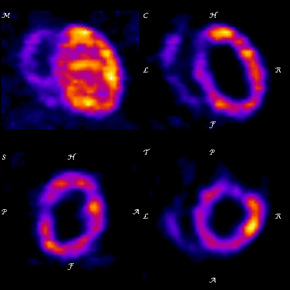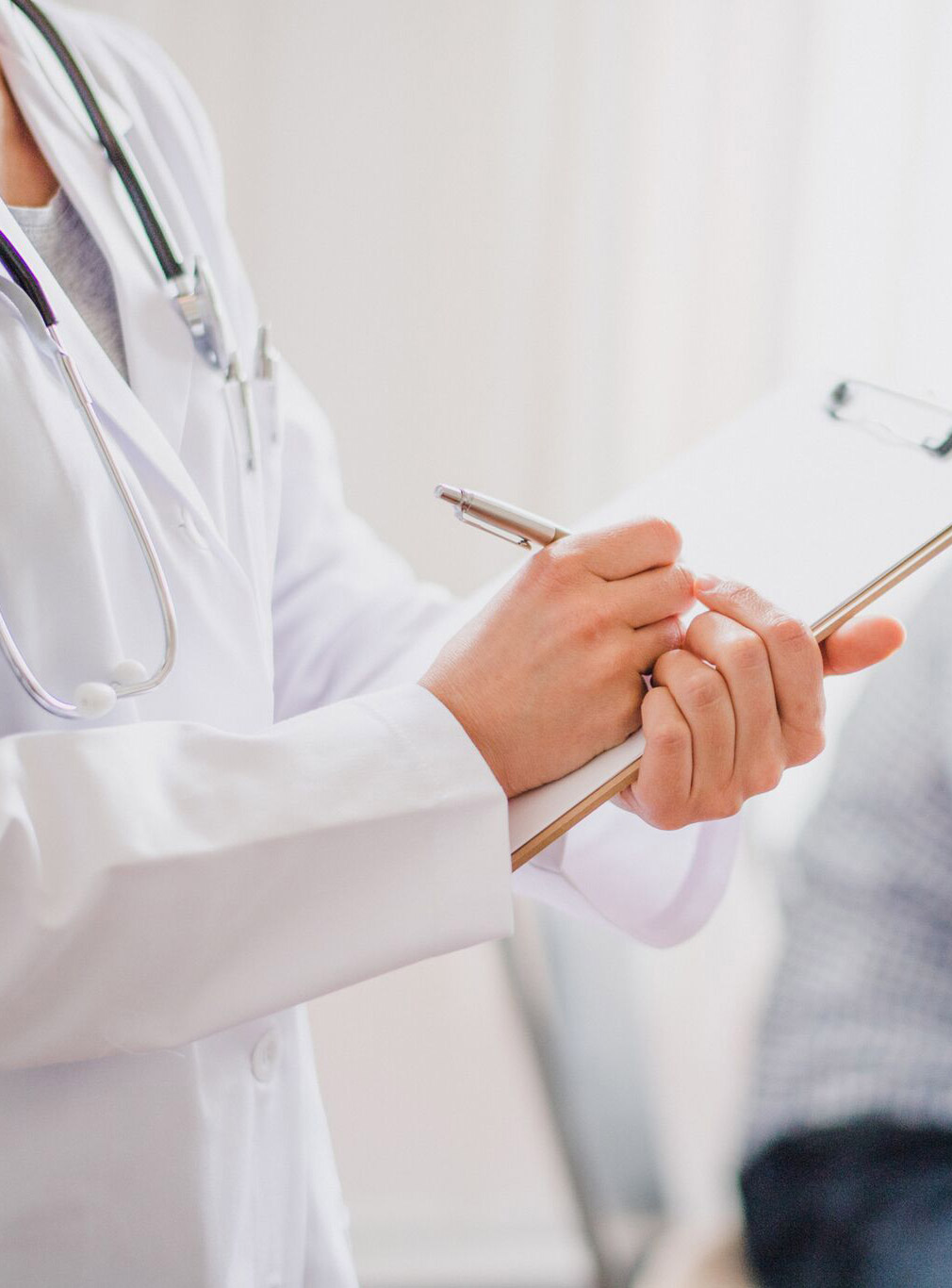Nuclear Scan
In a nuclear scan, a weakly radioactive tracer is injected into your blood and absorbed by your heart muscle. A heart scan reveals which parts of the heart retained the tracer, and to what extent.
A nuclear scan is performed using either a SPECT or PET scanner. The most common reason for a nuclear scan is a stress test. Other scanning protocols can diagnose specific diseases (such as amyloidosis, sarcoidosis, and myocarditis); determine the heart’s overall function; and assess for scar prior to bypass surgery.

What You Need to Know Before Your Nuclear Scan
To ensure the best experience possible, please note the following important points:
Allow plenty of time
Some nuclear scans can take several hours to complete. You won’t be in the scanner for more than a few minutes at a time, but sometimes the tracer needs to be in your system for one or two hours before the scan can be performed.
If you're having a stress test, you'll need to avoid caffeine and skip certain medications.
If you’re scheduled for a nuclear stress test, please avoid caffeine for at least twelve hours before your scan. In addition, do not take any of the following medications on the morning of your test: metoprolol (Toprol), carvedilol (Coreg), atenolol (Tenormin), propranolol (Inderal), nebivolol (Bystolic), diltiazem (Cardizem), verapamil (Calan).
More Details
What is a nuclear stress test?
A nuclear stress test determines the likelihood of significant plaque in the coronary arteries, which supply the heart muscle with blood.
A nuclear stress test begins with a rest scan. A nurse will insert an IV and then inject a weakly radioactive tracer, which is retained by your heart. After 30-40 minutes, a heart scan will assess the baseline level of tracer uptake. The next step is the stress scan. You will either exercise on a treadmill, or receive a medication that stresses the heart. The nurse will then inject a second dose of radioactive tracer, and 30-40 minutes later, you will have another heart scan.
Dr. Kelly will compare the stress and rest scans. The test is considered abnormal / positive if any part of the heart absorbs less tracer during stress than at rest.
What is a stress echocardiogram?
A viability scan helps distinguish diseased portions of the heart muscle from scar tissue. This test is typically performed prior to coronary artery bypass grafting, or CABG, since diseased heart muscle often improves with increased blood flow, whereas scar tissue does not. In most cases, scar tissue is the result of a previous heart attack.
What is an inflammation scan (for myocarditis or sarcoidosis)?
An inflammation scan diagnoses diseases such as myocarditis and sarcoidosis. Prior to the scan, you will need to avoid all carbohydrates for at least twelve hours. Upon arrival, a nurse will insert an IV. Immediately prior to your scan, you will be injected with a radioactively-labeled sugar solution. Your heart will then be scanned for about ten minutes.
Because of the carbohydrate fasting period, your body will be in an insulin-deficient state, and normal heart cells will be unable to metabolize any sugar. In contrast, immune cells retain the ability to metabolize sugar. Therefore, the heart scan will highlight the portions of the heart that have been invaded by immune cells, thereby indicating the presence of certain diseases.
What is an amyloid (PYP) scan?
An amyloid (PYP) scan determines if you have the condition known as TTR amyloidosis. A nurse will insert an IV and then inject a radioactive chemical known as PYP. Your heart will then be scanned for several minutes. If the scan result is not clearly positive or negative, you will need a repeat scan after two hours. The test is considered positive for amyloidosis if the PYP is strongly absorbed and retained by the heart.
When will I get my results?
The results will be provided via telephone or MyChart within a few days of your test.

